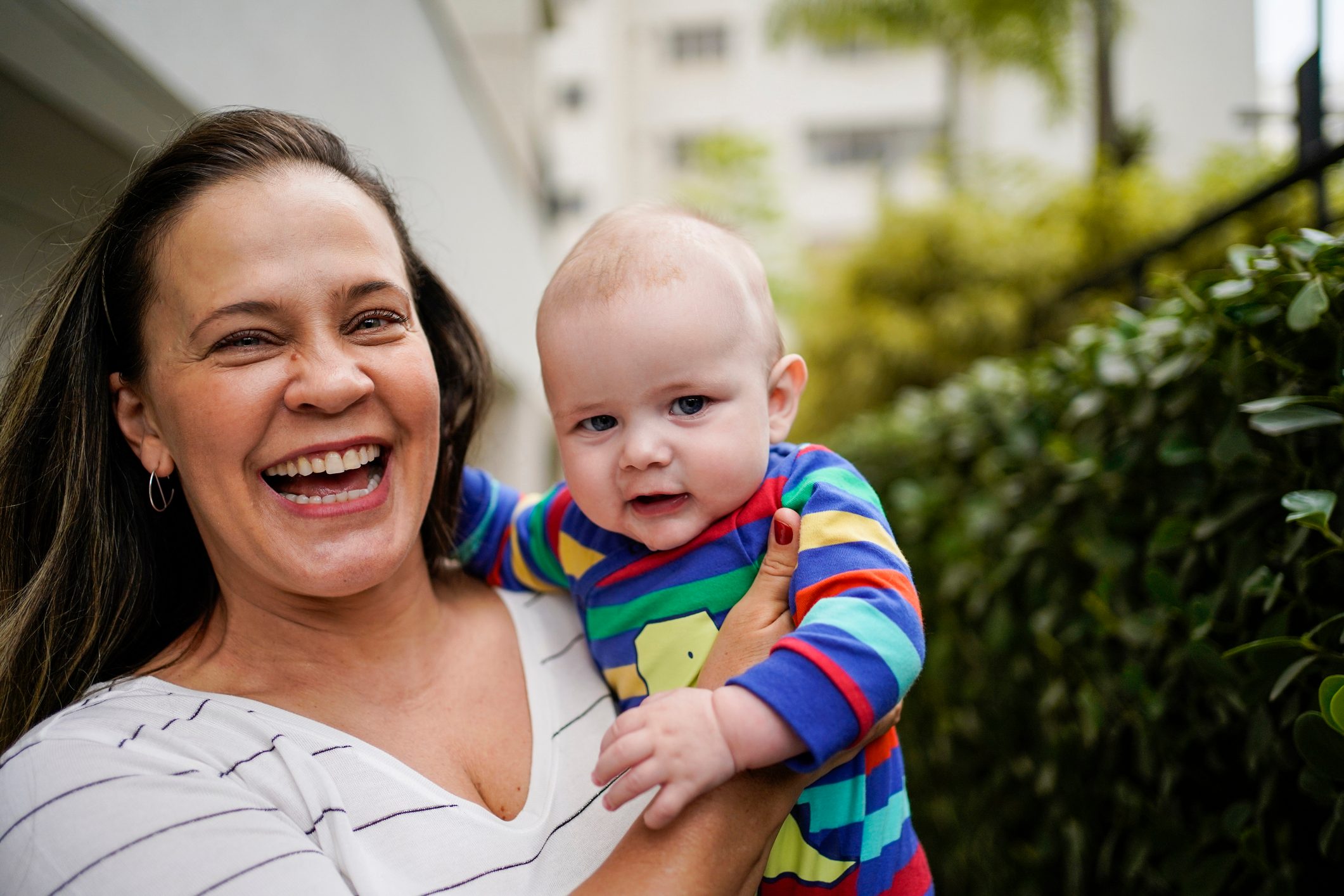In a period that’s made us more sensitive to reproductive health matters, a firm identified several states where women might feel most supported.

New Data: This Is the State with the Highest Number of Older Mothers

There are plenty of reasons why women are increasingly waiting until later in life to have children, if they choose to have them at all. Besides the prohibitive cost of living and childcare, many prospective parents now say they would prefer to wait until they’ve completed their education, gotten their footing in a steady career, and found the right partner before starting a family.
While birth rates have fallen for women in their 20s, more women now deliver their first child in their 30s, 40s, and although still rare, sometimes their 50s. However, the trend isn’t spread equally across the nation—women in some states are more likely to have children later in life compared with those in others.
According to new data collected by Birth Injury Lawyers Group on the prevalence of advanced maternal age across the country, women in New Jersey are the most likely to give birth for the first time between the ages of 35 and 49. In the Garden State, 32.7 births out of 1,000 women occur in women within that age range, according to the group’s study.
New Jersey also reports a notably low number of teen pregnancies. “While the state has the highest birth rate for older mothers, it has the joint fourth lowest birth rate by young mothers aged 15 to 19, with a rate of 8.2 births per 1,000 women,” the Lawyers Group wrote.
Other locations that made the top-10 list for advanced maternal age were clustered largely on the East Coast, but a few Midwestern and West Coast states also appear. Ranked from the highest to lowest numbers of older mothers per 1,000 women, those states were:
- New Jersey: 32.7 births per 1,000 women
- Massachusetts and New York: 31.0 births per 1,000 women
- California: 29.5 births per 1,000 women
- Maryland and Hawaii: 28.9 births per 1,000 women
- Connecticut: 28.7 births per 1,000 women
- Minnesota: 27.1 births per 1,000 women
- Virginia and Washington: 26.0 births per 1,000 women
- Alaska: 25.5 births per 1,000 women
- Delaware: 25.0 births per 1,000 women
- Rhode Island: 24.8 births per 1,000 women
Bob Goldwater, a spokesperson for Birth Injury Lawyers Group, suggests that economic, health, and lifestyle factors could all be shaping women’s decisions to become older mothers.
“With reports that the national birth rate has decreased by 12% since last year, this data also gives us a closer look at which age groups are more likely to have a baby. Overall, we can use this data to predict American women’s choices regarding their fertility and decision to start a family,” Goldwater adds.
For women planning to grow their families later in life, the research also shows they’re not alone. According to past data from the Centers for Disease Control and Prevention (CDC), women in 1970 gave birth to their first child at an average age of 21.4. The Pew Research Center’s more recent data shows this number steadily ticking upward: In 2021, women gave birth for the first time at an average age of 27.3 in the U.S, which was up from 2011 data when an average age of a first-time mother was 25.6 years old.
The Mayo Clinic points out, “The biological clock is a fact of life. But there’s nothing magical about age 35. It’s simply an age at which risks become more discussion worthy.” They add: “If you’re older than 35 and hoping to get pregnant, you’re in good company.”
Talking to your doctor about potential risks will help enhance your chances of a healthy pregnancy and delivery. “Many families are delaying pregnancy well into their 30s and beyond—and delivering healthy babies,” the Mayo Clinic continues. “Taking special care can help give your baby the best start.”
For daily wellness updates, subscribe to The Healthy by Reader’s Digest newsletter and follow The Healthy on Facebook and Instagram. Keep reading:
- New National Data: Less Than 20% of This Vulnerable Group Are Getting Their Covid Vaccine
- “What I Wish I’d Known About Pregnancy”: A Doctor Details What Expectant Parents Should Know
- IVF Is Now Covered by Insurance in This State
- Chrissy Teigen on Birth After Pregnancy Loss: “You Breathe a Sigh of Relief”




















